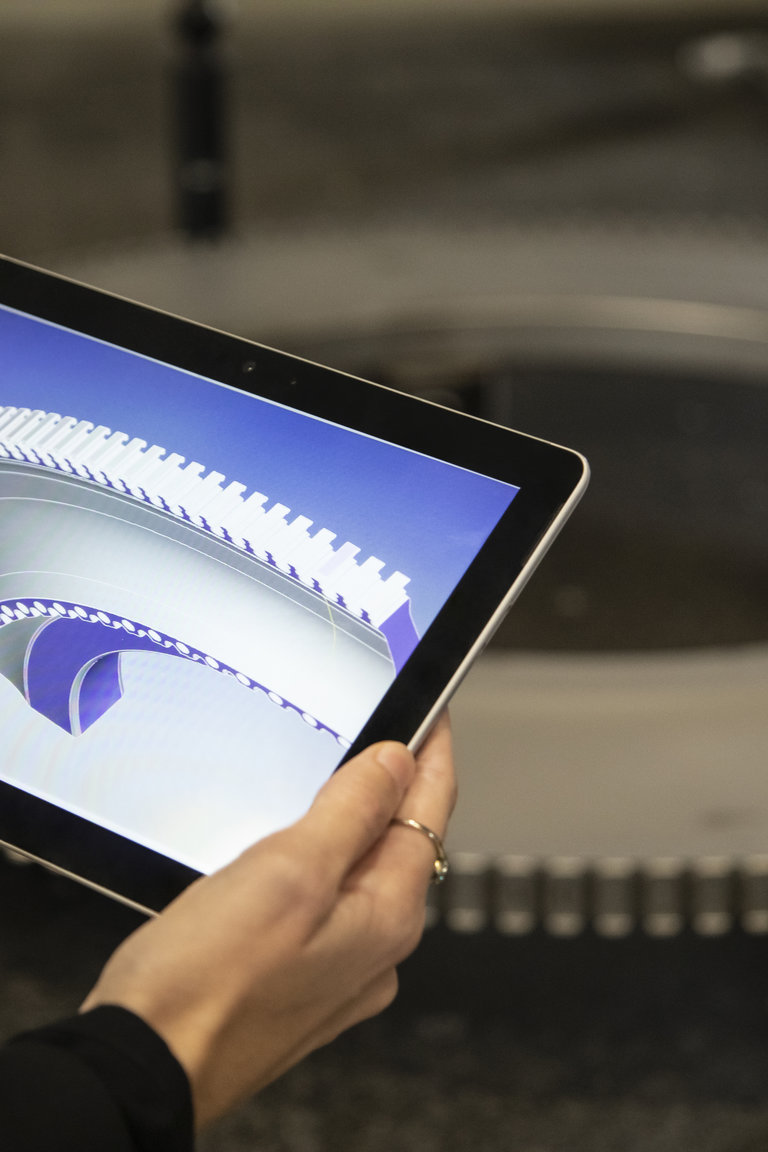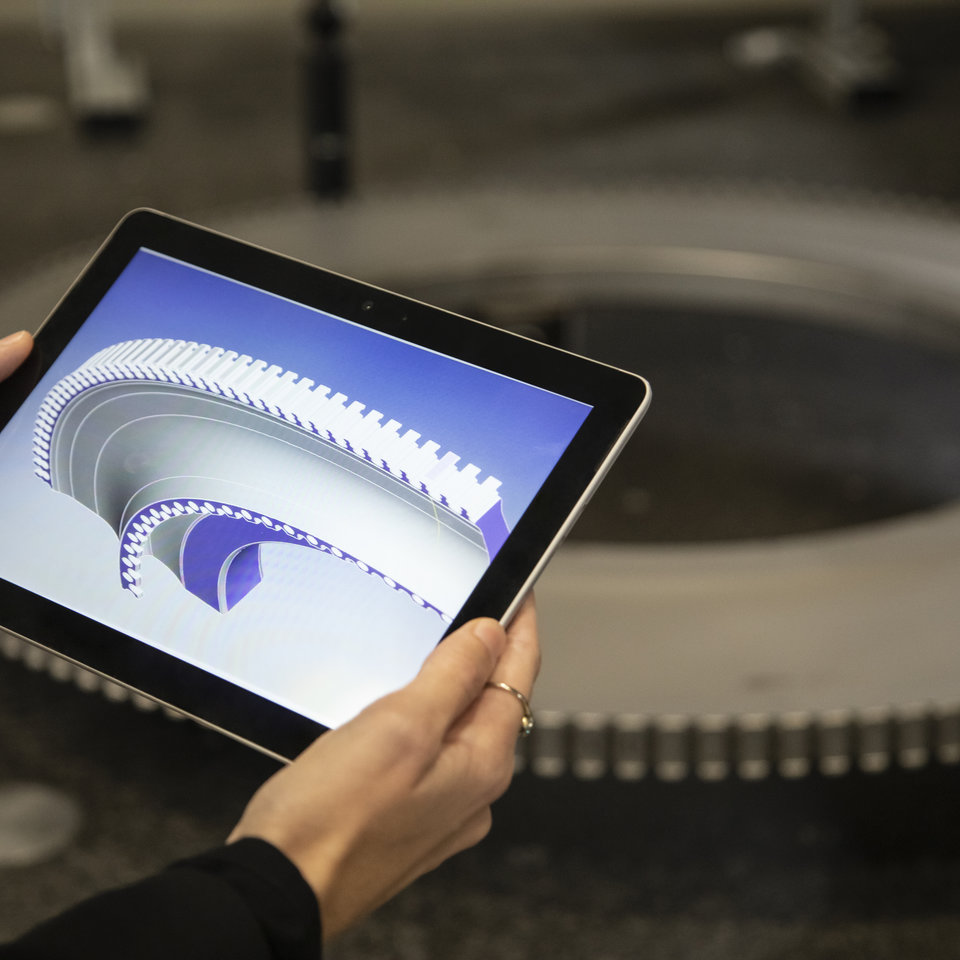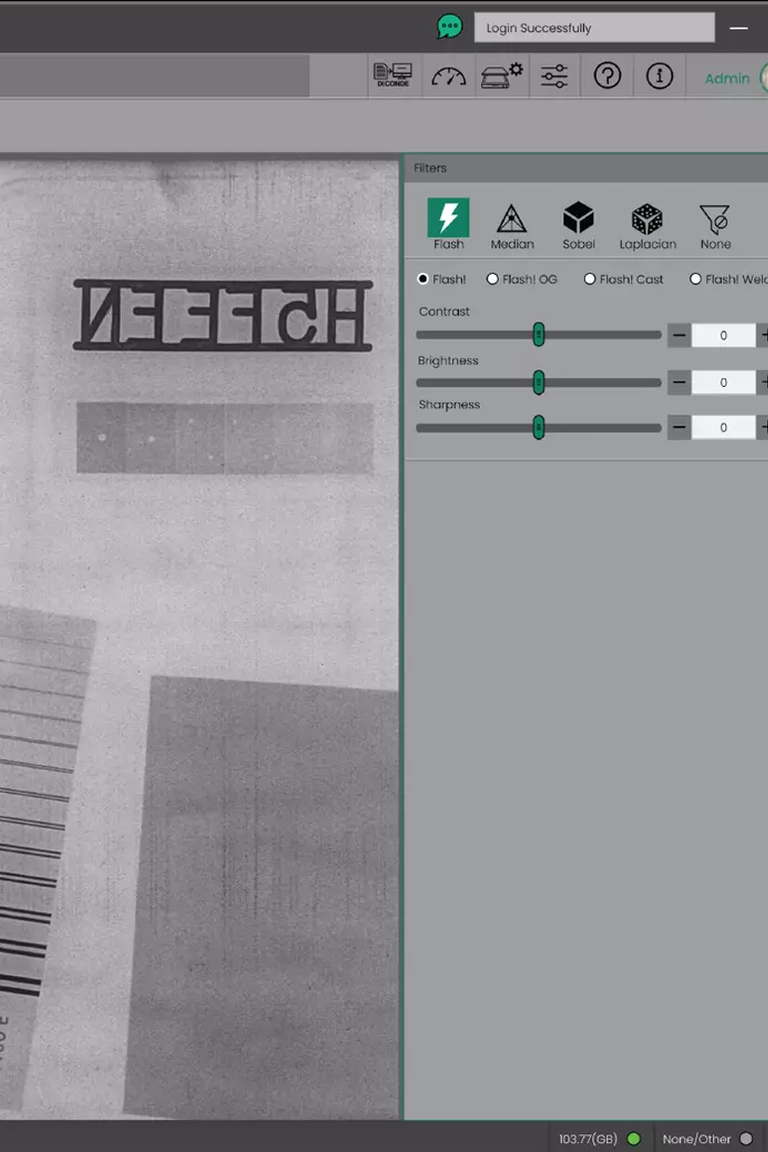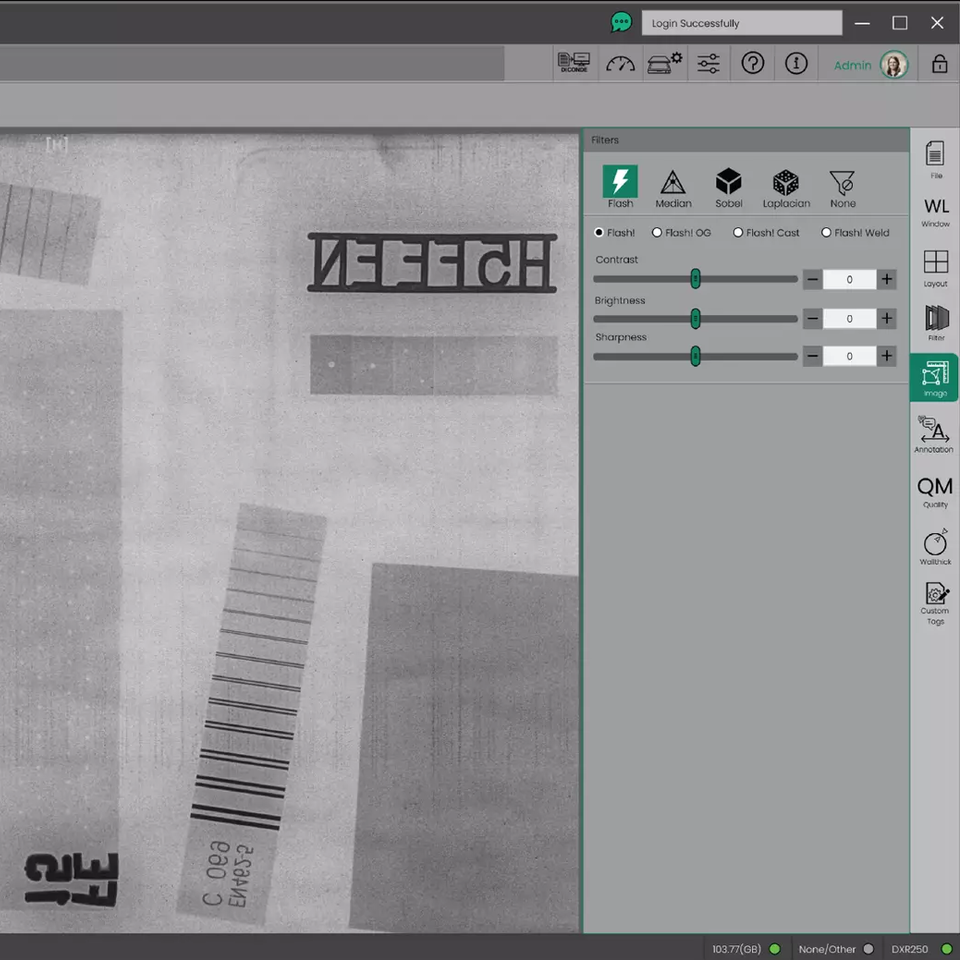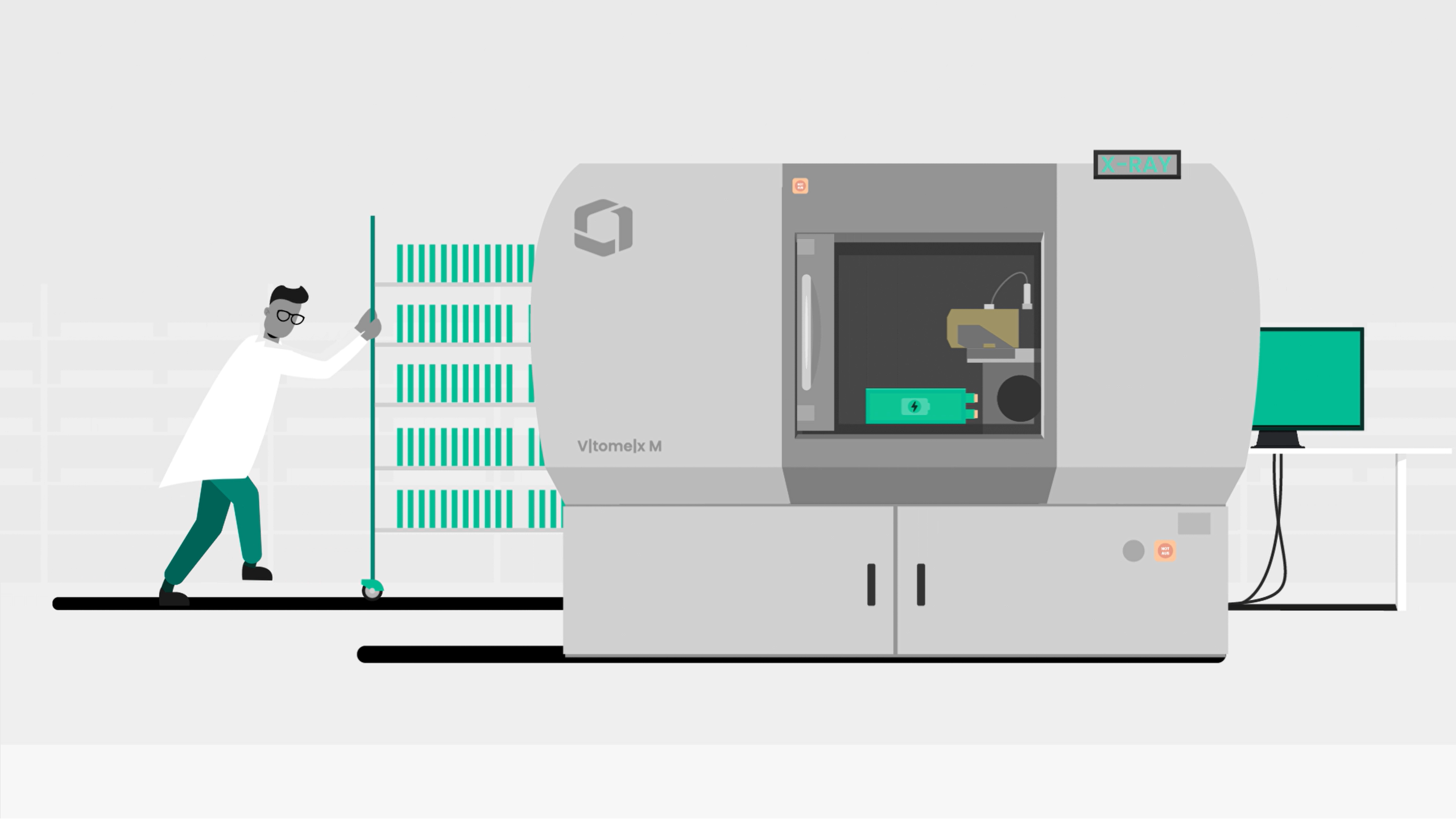
NDT for Laboratories and Academia
Technologies made for your research challenges
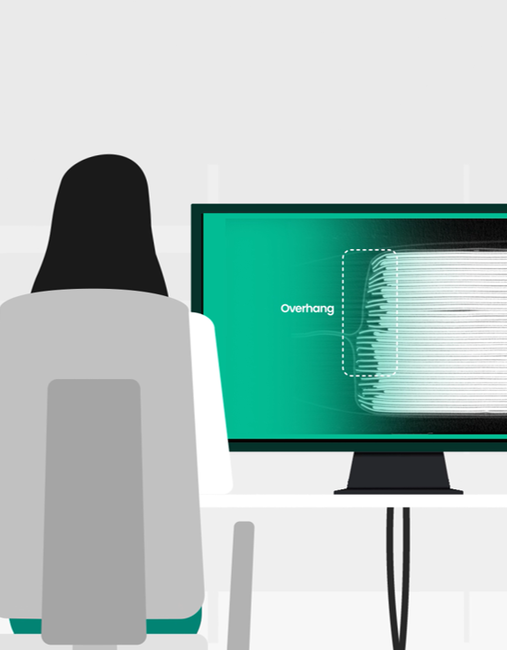
Inspection and NDT solutions for Laboratories and Academia
Since the detection of X-rays 125 years ago, Waygate Technologies has been on the cutting edge of nondestructive testing solutions for laboratories and academic study. We’ve pioneered technologies including nanofocus X-ray tubes, micro- and nano-computed tomography, and ultrasonic inspection. Leading scientists around the globe, in fields from materials science to geology to archaeology, rely on our superior imaging capabilities to make the invisible visible.
For more than 20 years, we have also been supporting the battery industry, which develops and manufactures batteries that are becoming increasingly important for our daily lives. An important role is played by academia and laboratories researching the optimization of old battery types and the development of new ones. With our hardware, software and service solutions, we support them in working on the next technological breakthrough.
Navigating complexity: advanced battery technology for your research challenges

Universities and labs often face challenges when testing new battery technologies

Advanced battery technology requires sophisticated testing methods

Battery life cycle assessment involves evaluating environmental impact, energy efficiency, and recyclability

Limited budgets can hinder universities from acquiring advanced equipment or experienced personnel
How Waygate Technologies can add value
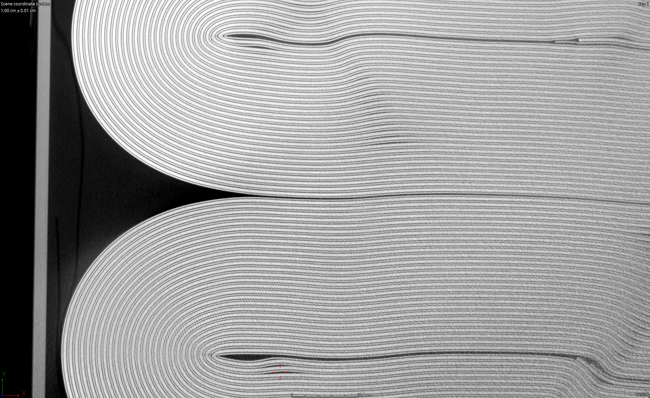
CT scans provide non-destructive, high-resolution 3D images of battery internals, revealing minute details without disassembly
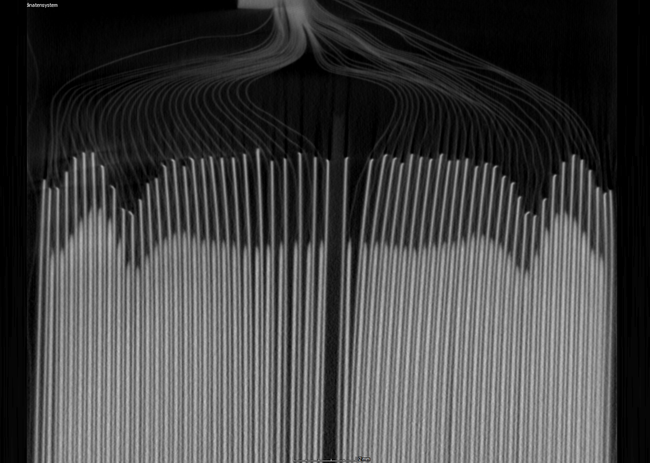
CT scans analyze internal structures under stress, revealing how materials and designs withstand mechanical and thermal cycling for long-term durability
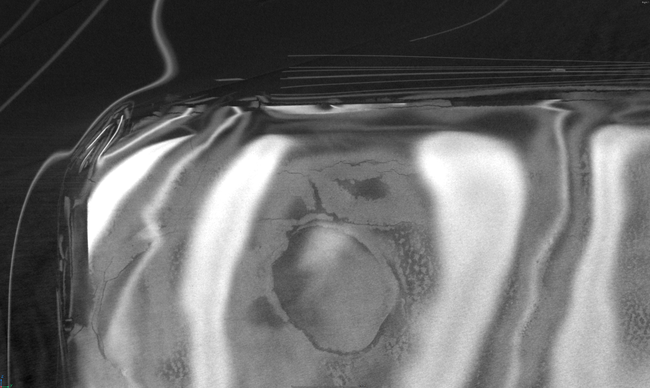
CT scans identify micro and nano-scale defects early in development, enabling design optimization for improved performance and safety
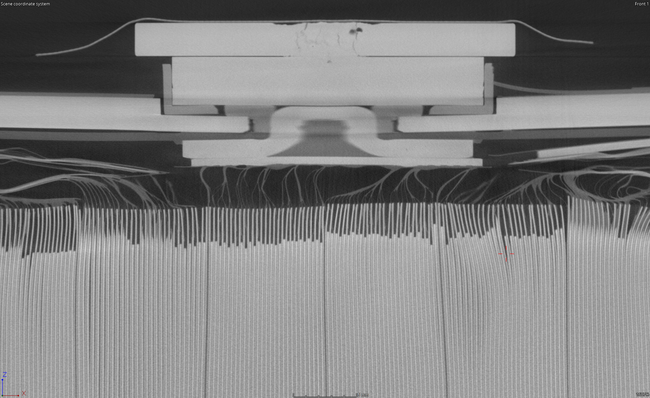
CT scans verify electrode alignment and provide data for structural optimization, enhancing battery performance and efficiency
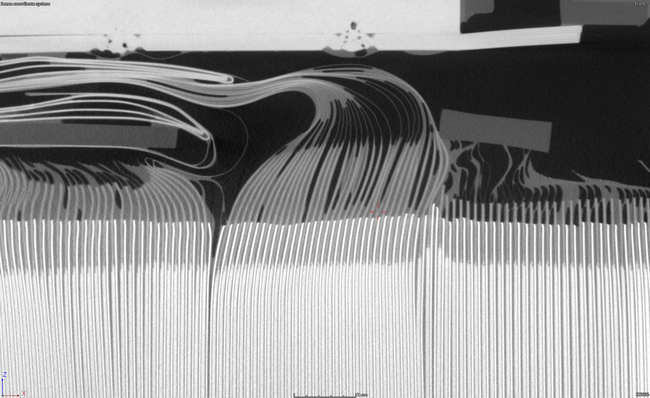
CT scans assess electrolyte distribution uniformity, aiding in filling process optimization and performance enhancement
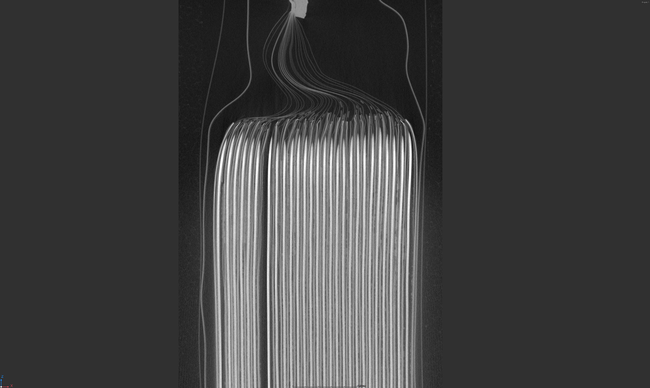
CT scans analyze batteries throughout their lifecycle, revealing degradation mechanisms and correlating them with performance data
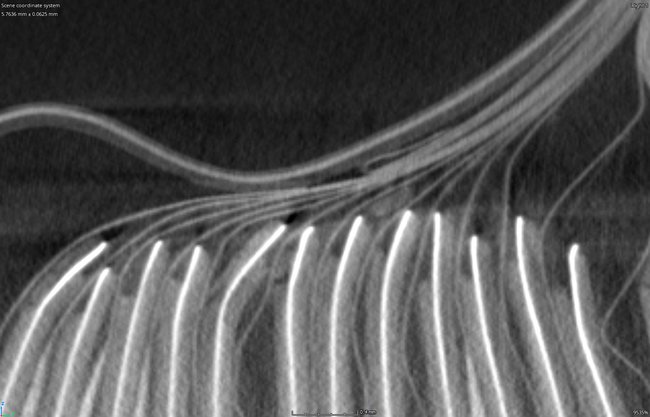
CT scans analyze failed batteries to determine root causes, improving the reliability and safety of future designs
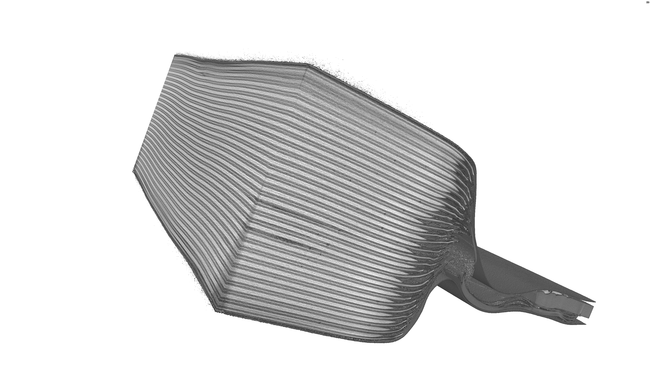
CT scans enable rapid prototyping and iterative development by providing immediate feedback on internal structures
Our Hardware Offerings
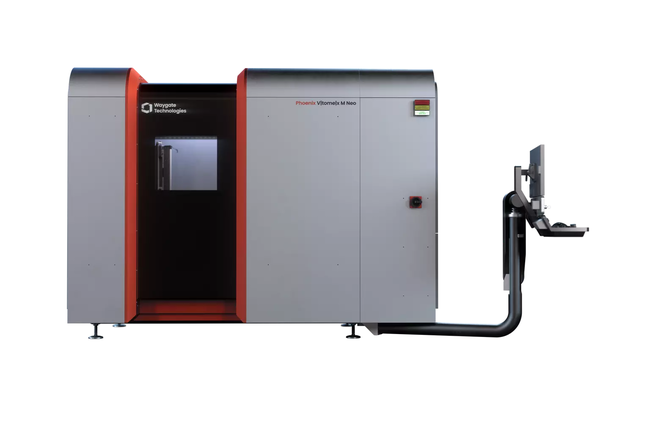
Our flagship computed tomography solution Phoenix V|tome|x M Neo sets a new standard in flexibility, speed, and detection quality, making it the ultimate solution for battery testing, offering precise anode and cathode measurements, as well as failure analysis for various battery cell configurations.
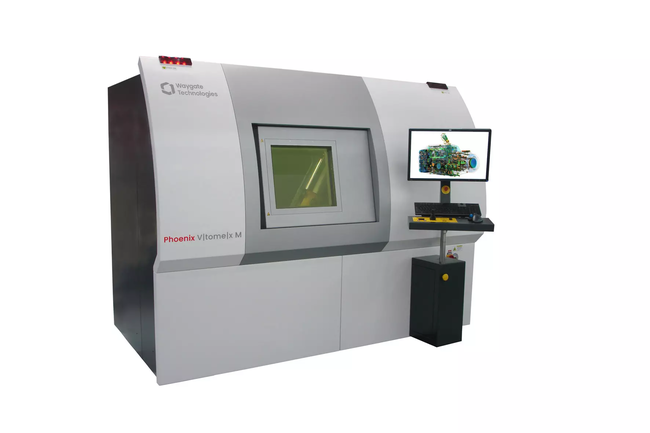
Designed for 3D metrology and analysis with scatter|correct technology to automatically remove scatter artifacts for higher image quality. High-quality 3D micro- and nanoCT results and outstanding metrology precision with 300 kV penetration power enable improved safety and throughput.
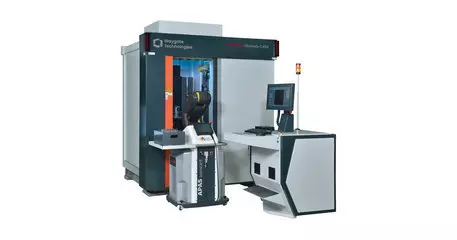
A powerful, compact 450 kV precision CT scanner specially designed for large sample 3D computed tomography. Its production-oriented, low-maintenance design offers speed and flexibility allowing for safe production inspection and metrology with a VDI/VDE 2630-1.3 conform precision spezification of SD ≤ (15 ± L/50 mm) µm.

Phoenix Power|Scan HE
High Energy CT Inspection starts here
The combination of penetration power and our advanced CT features such as Scatter|correct technology make this CT system predestined to scan extremely large, heavy and high absorbing complex parts and assemblies with unmatched speed, precision, and ease of use — enabling faster, more precise inspections.
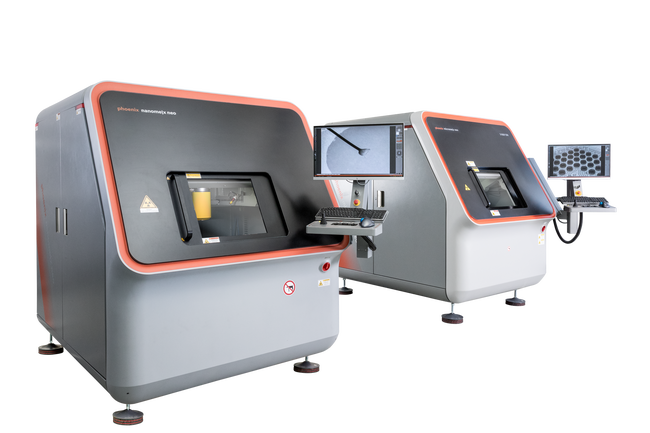
The Phoenix Microme|x Neo and Nanome|x Neo provide high-resolution 2D X-ray technology, PlanarCT and 3D computed tomography (CT) scanning in one system. The systems are ideally suited for efficient non-destructive testing (NDT) of electronic components such as semiconductors, PCBAs, lithium-ion batteries and more.
Our Software Offerings
Our Service Offerings
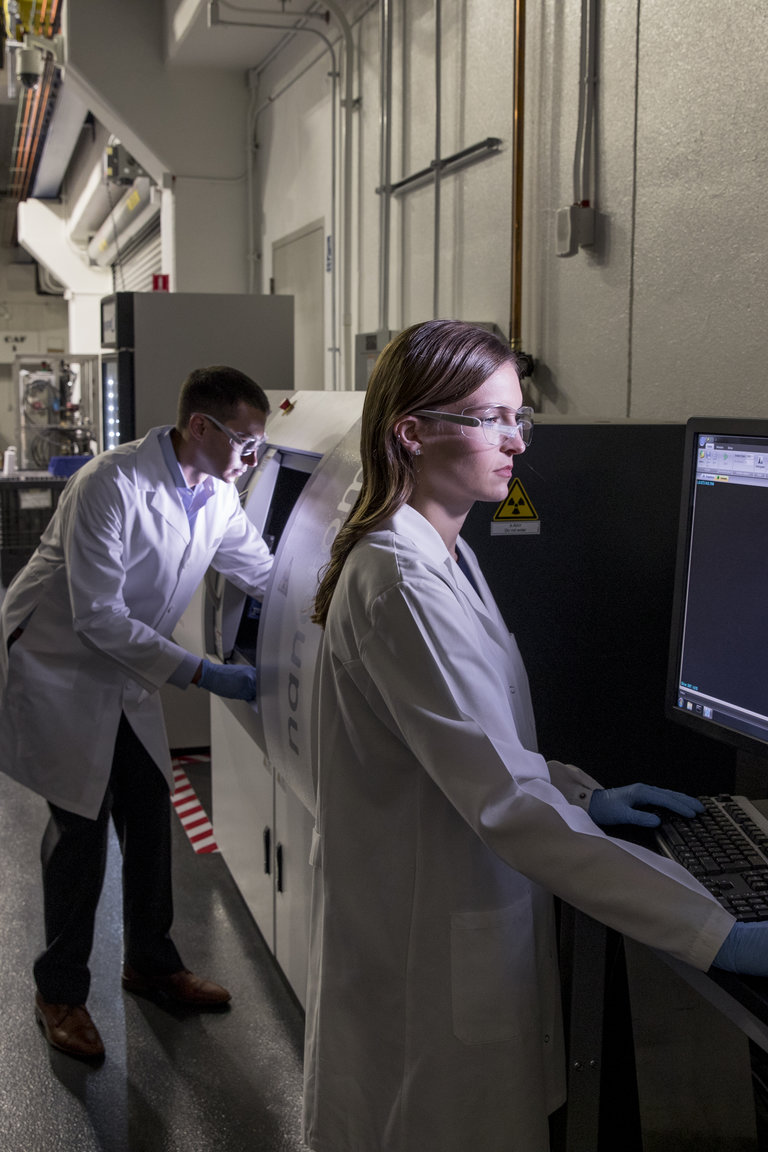
Our Customer Solutions Center experts offer a broad range of services ranging from in-depth consultations and feasibility studies to evaluate the best inspection solutions for individual inspection tasks, highly customizable testing solutions covering defect analysis or 3D measurement or on-demand or pay-per-scan inspection services with latest Waygate Technologies NDT equipment.
Datos|x 软件用于从 3D 系统中获取并重建 CT 数据量。 X|approver 是预置机器学习 ADR 软件 (自动缺陷识别),拥有用于评估电池与其他组件质量的特定教学算法。 Waygate Technologies 的软件包含完整直观的工作流程管理,以及在自动决策生产背景下运行的综合 ADR 库。 报告功能可以使您能一目了然地发现生产中潜在的负面趋势。经授权的操作人员都可以对经扫描的样品进行参数设置(如用于高精度的过量问题检测),并且随着时间的推移,算法会变得更加精确。 高度一致的缺陷分析结果能够减少高素质操作人员的工作量,从而帮助公司减少对于操作人员的依赖性。 Waygate Technologies 的软件还可以部署在云端,在电池和其他领域执行额外的 ADR。
电池结构相当复杂,供应商之间并无统一的标准。 电池制造完成后会进行密封,如同一个黑箱。 没人知道内部结构的真实完整性。 为了避免电池报废,必须通过无损的方式检查其内部,而 CT 检测技术是这一工作的最佳选择。 我们的 Phoenix 产品线为原始制造商和供应商提供了确实保障,并且有助于减少因废弃和召回所导致的高昂代价。
借助 3D CT 技术,我们可以在电池完成组装后检查其内部,进行更加详细的检测并更加准确地评估整个电池。 这使 CT 成为查找电池故障或测试问题原因的最佳解决方案。 因此,这种解决方案能够降低测试失败率,进而减少报废量、成本和环境影响。 但是,我们客户的主要目标是优化成本效率。 每个出现测试问题的电池都会降低效率并且提高成本。 CT 是一款用于控制电池的通用工具。
例如,用于电动车辆或能源储存设施的电池由模块组成,每个模块反过来又由许多电池组成。 在电芯层面检测电池时,工程师会检查机械制造情况,查看是否存在任何杂质、电极均匀性、内部连接情况(焊接)和电芯内的电极排布。 检测电极几何形状包括检查电极之间的间隔、电极大小以及相对于彼此的朝向及其与外壁之间的距离和角度。 尽管也可以借助 2D X 射线系统,但检测人员无法看清故障全貌,因为 X 射线图像的所有叠加特征中只有一两种明显缺陷为肉眼可见。 工业计算机断层扫描 (CT) 可以针对电芯重要的部分及其在外壳内部的排布情况提供完整图像。 因此,检测人员可以找出导致 X 射线吸收偏差的任何一种缺陷。
电池研究机构、原始设备制造商以及汽车和电子行业的供应商都将 CT 用于开发、生产和故障分析中的质量保证。 汽车或电子设备中的电池发生故障并返厂后将接受 CT 测试。 打开电池会对其造成损坏。 因此,必须提前进行无损检测。 CT 检测可用于证明电池在打开前是否存在缺陷。 如果技术人员后续需要打开模块,CT 会以微米级精度向他们显示缺陷所在以及可以安全放置工具的位置,便于进行详细的损坏性检查。
为了更进一步,Waygate Technologies 与 Thermo Fisher 展开了合作。 CT 可以对电池及其他样本中的异常进行精确的 3D 定位(精确到微米),而 Thermo Fisher 可以使用激光对研究对象进行微米手术级的切割、通过等离子进行抛光并利用电子显微镜进行原子级分析,有助于查明异常根源。 无损 3D 缺陷检测和定位、在经 CT 确认的位置所进行的基于激光的损坏性检测曝光以及通过扫描电子显微镜的缺陷分析的共同作用,首次实现了从宏观尺度到原子级的多尺度工作流程。
电动汽车 (EV) 电池的报废率仍然居高不下。 主要电池制造商的一家工厂每年可以生产约一百万块电池。 如果报废率达到两位数百分比,那么就代表大量的废弃电池未达到质量标准。 同样也严重影响了利润和环境。
制造这些电池同样困难,尤其是当制造商想通过其使用的材料获取最大收益时。 Waygate Technologies 常常用于测量电极堆叠的有效性。 这些薄型交替电极必须精确放置,才能实现最佳功能和性能。 未正确放置的电极会降低电池容量,并造成汽车里程降低等结果。
电子行业中快速增长的电池需求导致开发时间和生产周期必须大幅缩短,并且不得影响最高产品安全性和产品质量。 缺陷设备不仅会带来责任风险,同样还会带来巨大的声誉风险。 锂离子电池是最强大的储能设备之一,常用于便携式电子设备、固定电源和电动汽车。 制造商和供应商正在努力提高负载能力,延长生命周期,并遵守所有质量保证和安全标准。 通过提前进行无损故障检测,工业 CT 使制造商能够监控生产量、获取产品质量统计数据并保证所有最佳生产参数,进而避免产生下游成本。 Waygate Technologies 顶尖工业 X 射线 CT 解决方案实现了高度灵活和安全的无损样本和电池检查,并提供了高级检查和测量应用程序。这些应用程序可用于电池生命周期各个阶段的质量控制和故障分析 — 从实验室到成批生产。
CT 检测可以在同一条或多条不同生产线上检查不同类型和尺寸的电池和缺陷。 此外,它还能降低移动大型电池来进行检测的转换时间和人员需求。
电池电芯种类繁多。 例如电动汽车行业,正处于一种不断学习的过程中。 因为在这个新兴的大规模生产行业中,数据收集的地方仍然会发生问题,并且目前还没有统计流程控制。 流程不得不经常进行重新界定。 每次发生变更时,学习曲线都要重新开始。 在电子行业中,电池的成熟度更高,但在另一方面,这个行业需要管理的大规模生产量也更大。
我们的 Phoenix 产品线可为汽车和电子设备的 OEM 和供应商提供确实保障。
我们总能从电池生产线中找出新缺陷。 我们的 CT 系统通过分析整个电池来提供帮助。 其他测试设备则侧重于单一的故障模式。 这些设备对单个故障进行测试,当该故障消除后,样本可能会因其他故障而仍然存在测试问题。 而 CT 不会发生这种情况。在 90% 的情况下,由于我们的 CT 系统十分灵活,它们可以检测到全部故障,并且 Waygate Technologies 专家可以帮助客户对任何新的故障模式快速做出反应。 电池制造商目前使用的主流 CT 解决方案为 Phoenix V|tome|x 系列,该系列可根据具体客户的需求提供不同版本。 经验丰富的 Waygate Technologies 服务与支持团队随时准备着为客户提供规划、设置、调整与维护方面的帮助。
提及全自动大规模检测,我们全新的 Speed|scan HD 解决方案目前已得到全球一流电池制造商的首批电池半导体制造厂的采用。
Waygate Technologies 在电池无损检测和故障检测方面拥有二十余年的经验。 拥有手机电池生产经验的制造商已开始制造用于电动汽车的大型电池。 即使 EV 电池属于截然不同的应用领域,但 Waygate Technologies 在电池检测和汽车行业方面拥有的丰富经验使其能够快速进行部署。 整个 CT 团队专业知识的结合使 Waygate Technologies 能够出色地完成机器设置并快速解决问题。 我们的系统用途极为广泛,操作简单。 我们经验丰富的服务与支持团队随时准备着为客户提供协助,并将帮助针对制造商针的各种挑战找出最佳解决方案。


